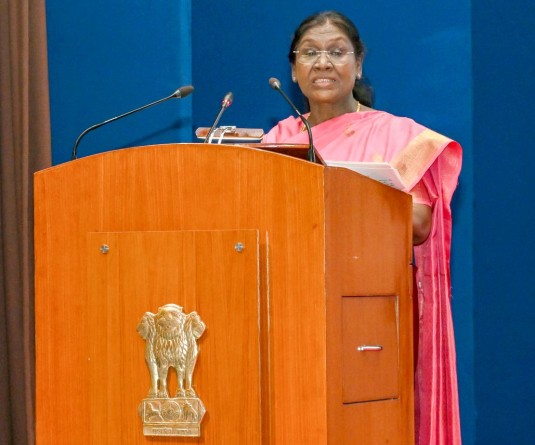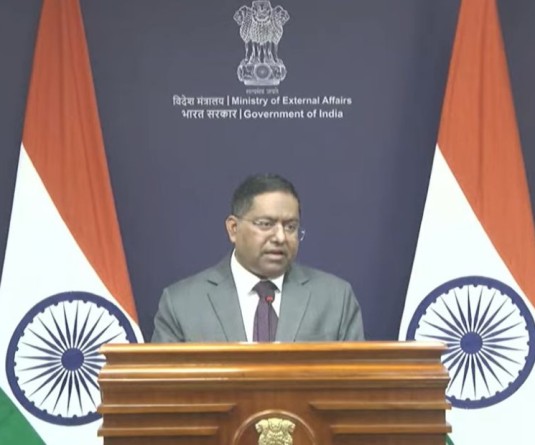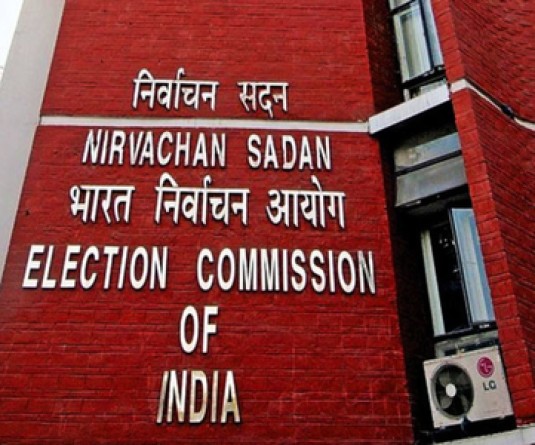
Lovers? Gandhi and Kallenbach sit alongside a female companion. A new book has controversially said that the pair had a two-year relationship between 1908 and 1910.
NEW Delhi, march 29 (Agencies): Thousands of books have been written on Mahatma Gandhi with each new one claiming to have discovered an unknown facet of his eventful life. When reviews of Pulitzer prize winner Joseph Lelyveld’s “Great Soul: Mahatma Gandhi and His Struggle with India” hit the newspapers in England and US claiming that the book says Gandhi was a bisexual and had a German-Jewish bodybuilder lover in Hermann Kallenbach it created immediate sensation. But as the Daily Mail’s review of the book created a storm in cyberspace, there was a barrage of protests not just from Gandhians who said this was “blasphemy”, but from the book’s author himself who denied having suggested anything of the sort.
Lelyveld told TOI, “I do not allege that Gandhi is a racist or bisexual in ‘Great Soul’. The word ‘bisexual’ nowhere appears in the book.” He also denied having called Gandhi a racist. “The word ‘racist’ is used once to characterise comments by Gandhi early in his stay in South Africa, part of a chapter summarising his statements about Africans and his relations with them. The chapter in no way concludes that he was a racist or offers any suggestion of it.” Psychoanalyst Sudhir Kakar, one of the first to write on Gandhi’s sexuality in ‘Intimate Relations: Exploring Indian Sexuality’ and later in ‘Mira and Mahatma’, is yet to read the book but has gone through an ocean of archives on Gandhi and says he never discovered anything that the reviewers claim the book consists of.
Kakar remembers finding references to Kallenbach during his research but not the way the reviewers have portrayed it. He says if the book has what reviewers claim then it is plain “stupid.” “Gandhi always talked of complete love but it was of platonic kind,” he says. Another eminent modern India historian who has read the book said, “The reviews are by Churchill fans and rightwingers.” The Mahatma’s grandson Gopal Gandhi said, “I will not comment till I read the book.” But Gandhian scholar Tridip Suhrud, author of books like ‘The Autobiography of The Story of My Experiments With Truth’ not only interacted with Lelyveld when he was researching the book but has also read it. He is aghast with the reviews and swears by Lelyveld. Suhrud says the section on Kallenbach begins with a quote from him.
“Lelyveld asks me what I think of Gandhi’s relationship with Kallenbach and I say, ‘It is almost like a couple’. The two had a deep bond that borders on attraction of platonic kind. Joseph is not talking about what the reviewers are claiming,” Suhrud says. He explains that in the late 19th century and early 20th century men addressed each other in a way that can be construed now as lovers. He gives the instance of letters between Rabindranath Tagore and CF Andrews. “Andrews wrote to Tagore in a manner that might raise eyebrows today. But the context was different then as also the usage of words. Tagore addressed him as Charlie,” Suhrud says. He also says reviewers claim that the book portrays Gandhi as a racist is factually incorrect. In fact, he says, the book chronicles his work with Zulus as well during the Boer War where he took up the cause of the blacks.
Suhrud goes on to give full marks to Lelyveld and the book. He says it is the first political biography of Gandhi by an expert on apartheid. “It is a fascinating work. Lelyveld shows there is continuity in Gandhi as well as major points of departure. Gandhi of South Africa was not the same as Gandhi of Sabarmati ashram. And Gandhi of Sabarmati was not the same after Dandi March.” Lelyveld agrees: “The aim of ‘Great Soul’ is to sift the evidence and facts of Gandhi’s life and discuss them in a careful, responsible and balanced way.”
Lelyveld told TOI, “I do not allege that Gandhi is a racist or bisexual in ‘Great Soul’. The word ‘bisexual’ nowhere appears in the book.” He also denied having called Gandhi a racist. “The word ‘racist’ is used once to characterise comments by Gandhi early in his stay in South Africa, part of a chapter summarising his statements about Africans and his relations with them. The chapter in no way concludes that he was a racist or offers any suggestion of it.” Psychoanalyst Sudhir Kakar, one of the first to write on Gandhi’s sexuality in ‘Intimate Relations: Exploring Indian Sexuality’ and later in ‘Mira and Mahatma’, is yet to read the book but has gone through an ocean of archives on Gandhi and says he never discovered anything that the reviewers claim the book consists of.
Kakar remembers finding references to Kallenbach during his research but not the way the reviewers have portrayed it. He says if the book has what reviewers claim then it is plain “stupid.” “Gandhi always talked of complete love but it was of platonic kind,” he says. Another eminent modern India historian who has read the book said, “The reviews are by Churchill fans and rightwingers.” The Mahatma’s grandson Gopal Gandhi said, “I will not comment till I read the book.” But Gandhian scholar Tridip Suhrud, author of books like ‘The Autobiography of The Story of My Experiments With Truth’ not only interacted with Lelyveld when he was researching the book but has also read it. He is aghast with the reviews and swears by Lelyveld. Suhrud says the section on Kallenbach begins with a quote from him.
“Lelyveld asks me what I think of Gandhi’s relationship with Kallenbach and I say, ‘It is almost like a couple’. The two had a deep bond that borders on attraction of platonic kind. Joseph is not talking about what the reviewers are claiming,” Suhrud says. He explains that in the late 19th century and early 20th century men addressed each other in a way that can be construed now as lovers. He gives the instance of letters between Rabindranath Tagore and CF Andrews. “Andrews wrote to Tagore in a manner that might raise eyebrows today. But the context was different then as also the usage of words. Tagore addressed him as Charlie,” Suhrud says. He also says reviewers claim that the book portrays Gandhi as a racist is factually incorrect. In fact, he says, the book chronicles his work with Zulus as well during the Boer War where he took up the cause of the blacks.
Suhrud goes on to give full marks to Lelyveld and the book. He says it is the first political biography of Gandhi by an expert on apartheid. “It is a fascinating work. Lelyveld shows there is continuity in Gandhi as well as major points of departure. Gandhi of South Africa was not the same as Gandhi of Sabarmati ashram. And Gandhi of Sabarmati was not the same after Dandi March.” Lelyveld agrees: “The aim of ‘Great Soul’ is to sift the evidence and facts of Gandhi’s life and discuss them in a careful, responsible and balanced way.”
Maharashtra to ban controversial book
MUMBAI, March 29 (PTI): Maharashtra government will initiate steps to ban sale of a controversial book on Mahatma Gandhi by Pulitzer prize-winning journalist Joseph Lelyveld. “Gandhiji was a respected leader and is known as the father of nation. He led the freedom movement of India. The government will initiate steps to ensure that the book is not published in the state,” Industries Minister Narayan Rane told the Legislative Council today.
The minister also informed that the state government would write to the Centre for not publishing the controversial book. Congress MLC and Maharashtra Pradesh Congress Committee (MPCC) president Manikrao Thakre said in the upper house that the book ‘Great Soul: Mahatma Gandhi and His Struggle with India’ has maligned the character of the Father of Nation. “This is very serious that the author of the book has raised questions about the character of Gandhiji who initiated non-violence movement. I condemn the book and this should not be made available,” Thakre said.
The MPCC president also appealed to members of the House to join hands on the issue. Thakre said he would request the central government on behalf of the Council members to take strict “action” on the issue. The book written by Joseph Lelyveld reportedly carries controversial references about the Mahatma. Supporting the demand by Thakre, Chairman of the House Shivajirao Deshmukh said that the government should enquire the matter in detail and take appropriate action.
The minister also informed that the state government would write to the Centre for not publishing the controversial book. Congress MLC and Maharashtra Pradesh Congress Committee (MPCC) president Manikrao Thakre said in the upper house that the book ‘Great Soul: Mahatma Gandhi and His Struggle with India’ has maligned the character of the Father of Nation. “This is very serious that the author of the book has raised questions about the character of Gandhiji who initiated non-violence movement. I condemn the book and this should not be made available,” Thakre said.
The MPCC president also appealed to members of the House to join hands on the issue. Thakre said he would request the central government on behalf of the Council members to take strict “action” on the issue. The book written by Joseph Lelyveld reportedly carries controversial references about the Mahatma. Supporting the demand by Thakre, Chairman of the House Shivajirao Deshmukh said that the government should enquire the matter in detail and take appropriate action.






